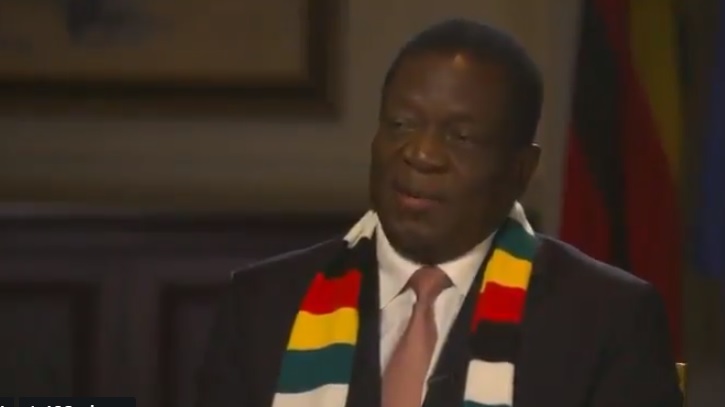Staff Reporter
Zimbabwe’s economy is expected to grow by 6% in 2025, driven by the recovery of the agriculture and mining sectors, President Emmerson Mnangagwa announced, today, at the High-Level Structured Dialogue Forum held at the Harare International Conference Centre (HICC).
The President expressed optimism about the country's economic recovery, despite the ongoing challenges. He noted that the economy has already demonstrated resilience, achieving a 5.3% growth in 2023, although he acknowledged the difficulties ahead of 2024. The country is projected to experience only 2% growth in 2024, largely due to the impact of El Niño-induced droughts, which have adversely affected agricultural production.
"The Zimbabwean economy has shown resilience, registering a 5.3 percent growth in 2023. This is projected to grow by 2 percent in 2024 mainly on account of the El Niño-induced drought, which affected agricultural production," said President Mnangagwa.
The President also noted the progress made since the establishment of the Structured Dialogue Platform in December 2022, emphasizing growing consensus, trust, and confidence in the initiative.
"Since the establishment of the Structured Dialogue Platform in December 2022, we have made tremendous progress, with growing consensus, trust, and confidence in this initiative. We have also seen an inclusive and transparent consultative process as we institutionalized Dialogue on Economic and Governance reforms underpinning Zimbabwe's arrears clearance and debt resolution process," said President Mnangagwa.
In his address, the President revealed that the Government was currently negotiating a Staff-Monitored Program (SMP) with the International Monetary Fund (IMF) to anchor further economic reforms, particularly in arrears clearance and debt resolution.
"To anchor the implementation of further economic reforms under the Arrears clearance and debt resolution process, the Government is currently negotiating a Staff-Monitored Program with the International Monetary Fund," he said.
While acknowledging the progress made, President Mnangagwaaddressed the potential negative impacts of the reforms on vulnerable groups in society. He emphasized the Government's priority to protect these groups through effective social protection programs.
"The implementation of any reforms under the SMP, however, impacts negatively on the vulnerable group of our population. In this regard, the protection of vulnerable groups through effective social protection programs is of critical importance to the Government," President Mnangagwa added.
Additionally, the President reaffirmed the Government’s commitment to securing land reform beneficiaries, stating that 2024 marked a significant milestone in providing land tenure security.
"My Government in 2024 made a bold decision to give security of tenure to all beneficiaries of the land reform program. This is in line with Section 292 of our Constitution. All land held by the beneficiaries of the land under the 99-year leases, offer letters, and permits will now be held as bankable, registrable, and transferable tenure documents."
"In line with the global compensation Deed signed in 2020, my Government made an allocation of 35 million in the 2024 National budget. I am pleased to highlight that a total of 444 applications for compensation under the global compensation deed were approved to date for payment by the compensation committee," he added.
Despite facing significant challenges such as an external debt overhang, global climate shocks, and illegal economic sanctions, President Mnangagwa expressed confidence that Zimbabwe continues to make important strides toward economic recovery.
He further reaffirmed the Government's commitment to fiscal discipline, focusing on maintaining budget deficits of less than 2% of GDP, while implementing tight monetary policies to ensure exchange rate stability and control inflation within single digits.
"The Government remains committed to fiscal discipline, through sustainable budget deficits of less than 2 percent of GDP. Tight monetary policies will support the effective management of money supply growth, ensuring stability of exchange rates and low single-digit inflation," he concluded.




